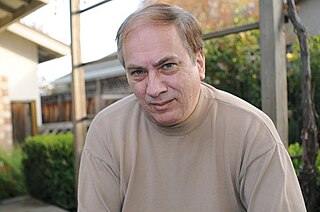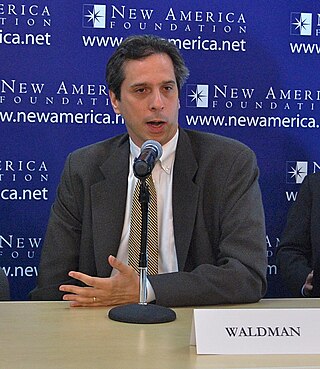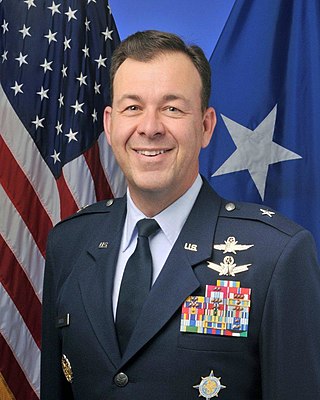Related Research Articles

A journalist is a person who gathers information in the form of text, audio or pictures, processes it into a newsworthy form and disseminates it to the public. This is called journalism.

Craig Alexander Newmark is an American internet entrepreneur and philanthropist best known as the founder of the classifieds website Craigslist. Prior to founding Craigslist, he worked as a computer programmer for IBM, Bank of America, and Charles Schwab. Newmark served as chief executive officer of Craigslist from its founding until 2000. He founded Craig Newmark Philanthropies in 2015.

Joseph Daniel Lasica is an American entrepreneur, public speaker and journalist. He is the author of Darknet: Hollywood's War Against the Digital Generation (2005), a book about the copyright wars and the future of media.
Brian Krebs is an American journalist and investigative reporter. He is best known for his coverage of profit-seeking cybercriminals. Krebs is the author of a daily blog, KrebsOnSecurity.com, covering computer security and cybercrime. From 1995 to 2009, Krebs was a reporter for The Washington Post and covered tech policy, privacy and computer security as well as authoring the Security Fix blog.
Jonathan Dube is an American digital media executive.
MySecureCyberspace began in 2003 as an initiative by Carnegie Mellon CyLab and the Information Networking Institute to educate the public about computer security, network security and Internet safety. Inspired by the National Strategy to Secure Cyberspace, the initiative empowers users to secure their part of cyberspace.

Howard Anthony Schmidt was a partner with Tom Ridge in Ridge Schmidt Cyber LLC, a consultancy company in the field of cybersecurity. He was the Cyber-Security Coordinator of the Obama Administration, operating in the Executive Office of the President of the United States. He announced his retirement from that position on May 17, 2012, effective at the end of the month.
Supa Collins Mandiwanzira is a Zimbabwean politician and journalist who served as the Minister of Information Communication Technology (2014-2017) and then Minister of Information Communication Technology and Cyber Security in the Cabinet of Zimbabwe from November 2017 to September 2018. His earlier portfolio had been merged with cybersecurity. He is a member of the Zanu-PF political party. He was the founder of the ZiFM Stereo radio station, and the online ZiTV station.
Bob Sullivan is an American online journalist, author and one of the founding members of msnbc.com. Sullivan is the author of two New York Times Bestsellers entitled Stop Getting Ripped Off and Gotcha Capitalism. Sullivan is a journalist at BobSullivan.net and an author. Formerly, he was senior writer, technology correspondent and author of the popular blog, The Red Tape Chronicles, at msnbc.com, where he focused on technology crime and consumer fraud. He also regularly appears on air on MSNBC, CNBC's On the Money, NBC Nightly News, the Today show, and various local NBC affiliates.

Alan Boyle is an American journalist specializing in science and technology news. He worked for msnbc.com and NBC News Digital as science editor from 1996 to 2015. In 2015, he became aerospace and science editor for GeekWire. Boyle is also president of the Council for the Advancement of Science Writing.
Merrill Brown is a media executive and journalist. In addition to writing for The Washington Post, he launched MSNBC.com and was the website’s founding editor-in-chief. He is the former Director of the School of Communication and Media at Montclair State University. Brown is founder of The News Project.

Steven Waldman is an American journalist. He is president and co-founder of Report for America—a national service program that deploys emerging journalists to local newsrooms. He is also the founder and president of Rebuild Local News, a nonpartisan nonprofit advocacy group dedicated to addressing the decline of local news and enhancing local democracy.
Thomas Eugene Costello is an American journalist and Senior Correspondent for NBC News, based in Washington, D.C. His reports appear across NBC News platforms, including online, The Today Show, NBC Nightly News, MSNBC, and CNBC. His portfolio of coverage includes aviation and transportation, NASA, consumer and regulatory issues, business, and economics. He also serves as a substitute anchor on NBC News Now, the network's streaming platform.
Jeffrey Carr is a cybersecurity author, researcher, entrepreneur and consultant, who focuses on cyber warfare.

Ari Naftali Melber is an American attorney and Emmy-winning journalist who is the chief legal correspondent for MSNBC and host of The Beat with Ari Melber.

Noah Shachtman is an American journalist and musician. He was the editor-in-chief of Rolling Stone. From 2018 to 2021, he served as the editor-in-chief of The Daily Beast. He previously was the executive editor of the site. A former non-resident fellow at the Brookings Institution, he also worked as executive editor for News at Foreign Policy and as a contributing editor at Wired.

Edmund Soon-Weng Yong is a British-American science journalist and author. In 2021, he received a Pulitzer Prize for Explanatory Reporting for a series on the COVID-19 pandemic. He is the author of two books: I Contain Multitudes: The Microbes Within Us and a Grander View of Life (2016) and An Immense World: How Animal Senses Reveal the Hidden Realms Around Us (2022).

Brigadier GeneralGregory (Greg) J. Touhill is Director of the world renowned Carnegie Mellon University Software Engineering Institute’s CERT Division. Previously, he was the president of AppGate Federal Group . He was previously appointed by President Barack Obama as the first Federal Chief Information Security Officer of the United States, stepping down in January, 2017. He was previously the Deputy Assistant Secretary, Office of Cybersecurity and Communications, National Programs and Protection Directorate, Department of Homeland Security. While at DHS he concurrently served as Director of the National Cybersecurity and Communications Integration Center (NCCIC) during 2014–2015.

Michael D. Weiss is an American journalist, author, and media commentator. He specializes in international affairs, in particular the Middle East and Russia. He is a contributing editor at New Lines magazine, a senior correspondent for Yahoo News, and editor of The Insider. He is a regular network guest on several CNN shows. He is also director of special investigations at the Free Russia Foundation.
Ana Cabrera is an American television journalist. From 2013 to 2022, she worked as a reporter and anchor for CNN. She is currently at MSNBC as of April 2023.
References
- ↑ CyberWire. "CyberWire Dispatch". CyberWire. Retrieved 6 December 2023.
- ↑ "Net gain". JD Lasica. 1 November 1996. Retrieved 15 June 2016.
- 1 2 Gillmor, Dan (2004). "We the Media - 10. Here Come the Judges (and Lawyers)". Authorama.com. Retrieved 6 December 2023.
- ↑ "NBC News - Breaking News & Top Stories - Latest World, US & Local News". MSNBC.com. Archived from the original on November 4, 2012. Retrieved 15 June 2016.
- ↑ "Carnegie Mellon Presents Cybersecurity Journalism Awards". Carnegie Mellon Today. 1 December 2004. Archived from the original on 8 July 2011. Retrieved 29 December 2008.
- ↑ "Brock N. Meeks". NBC News. 6 February 2006. Retrieved 6 December 2023.
- ↑ "2006 Online Journalism Awards Winners". Online News Association. Retrieved 6 December 2023.
- ↑ "Rising from Ruin". MSNBC.com. 1 January 2006. Archived from the original on 2 August 2016. Retrieved 15 June 2016.
- ↑ "eWeek Magazine - USA computer magazine". Mondo Times. Retrieved 6 December 2023.
- ↑ Revah, Suzan (November 1994). "Bylines". American Journalism Review. Archived from the original on 1 March 2012. Retrieved 15 June 2016.
- ↑ "Paging Dr. Gupta Blog". CNN.com. 6 September 2007. Retrieved 6 December 2023.
- ↑ "Atlantic Media". Atlantic Media. 1 October 2015. Retrieved 15 June 2016.
- ↑ "Team". Atlantic 57. Archived from the original on 31 March 2018. Retrieved 15 June 2016.